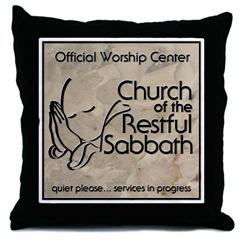
“THE first man who, having enclosed a piece of ground, bethought himself of saying This is mine, and found people simple enough to believe him, was the real founder of civil society. From how many crimes, wars and murders, from how many horrors and misfortunes might not any one have saved mankind, by pulling up the stakes, or filling up the ditch, and crying to his fellows, "Beware of listening to this impostor; you are undone if you once forget that the fruits of the earth belong to us all, and the earth itself to nobody."”
Jean Jacques Rousseau (1754)
On the Origin of the Inequality of Mankind
I remember when I first encountered this opening statement to Rousseau’s second chapter. I had been studying political theory at the graduate level at San Francisco State University with the purpose of discovering the secrets to solving the woes of human society. How naïve a person can be is perhaps gauged most accurately by determining his aspirations. I thought that thought itself was most likely to contain the remedy. I thought that maybe the remedy had already been thought, but had simply been misplaced, or set aside, waiting for a more advantageous time. But, then, this passage, and the breadth of the problem was displayed for me. I admit that my capacity to round out this dilemma is limited to my own existence, knowledge and prior thought.
To me, the above passage states that all things are possible because most of what we think of as “reality” is in fact imagined. The first chapter of the above quoted work concerns the “natural state of man.
“Let us conclude then that man in a state of nature, wandering up and down the forests, without industry, without speech, and without home, an equal stranger to war and to all ties, neither standing in need of his fellow-creatures nor having any desire to hurt them, and perhaps even not distinguishing them one from another; let us conclude that, being self-sufficient and subject to so few passions, he could have no feelings or knowledge but such as befitted his situation; that he felt only his actual necessities, and disregarded everything he did not think himself immediately concerned to notice, and that his understanding made no greater progress than his vanity. If by accident he made any discovery, he was the less able to communicate it to others, as he did not know even his own children. Every art would necessarily perish with its inventor, where there was no kind of education among men, and generations succeeded generations without the least advance; when, all setting out from the same point, centuries must have elapsed in the barbarism of the first ages; when the race was already old, and man remained a child.”
So, when we consider that this creature, mankind, was indeed persuaded to become civil, we begin to understand the power of our own imagination.
Many people will argue from a state of what they consider to be real. But, what is actually real? Are marriage, religion, government, the nation state, economics, etc., real or are they inventions of our collective imagination? Let’s take Rousseau’s pre-society man: on a certain day this man is walking down an animal trail looking for that day’s nourishment. And, lo and behold, this man looks down and says “Wow! Look, economics.” These things are not to be found in the natural world. It is by our collective agreement that we will agree to believe that these institutions exist that brings us all to the social contract. Without the contract, we return to the “natural state of man.
So, why am I getting into all of this? When Howard said, “we have the power” I believe that he meant that we have the power to order our own lives based on the terms of the social contract that we would prefer. That we are in this thing, our life, our community, our nation, our world, together, and that we need to think in those terms. We need to order the terms of the social contract so that we consider each individual and each group as parts of the whole, not as competitors surrounding some imagined huge dog dish that has a limited supply of food. Every man for himself is exactly Rousseau’s description of the pre-society man. Is this what we would choose?
The key, then, is in the belief system. Persuasion is the method. A well thought out line of argument is the tool that will enable us to begin reach the goal. Sturdy leadership based on science, philosophy, and just morality will show the proof of the theory. We can create a just, fair, and lasting society.
This is not an all encompassing tome that offers all of the answers, or all of the questions, but it is, hopefully, the beginning of a discussion, here, about how we can change the minds of our fellow citizens and arrive at a logical consensus as to how to begin creating our present reality for the benefit of all.
For more on Rousseau, click here.
Alternative link for comments






